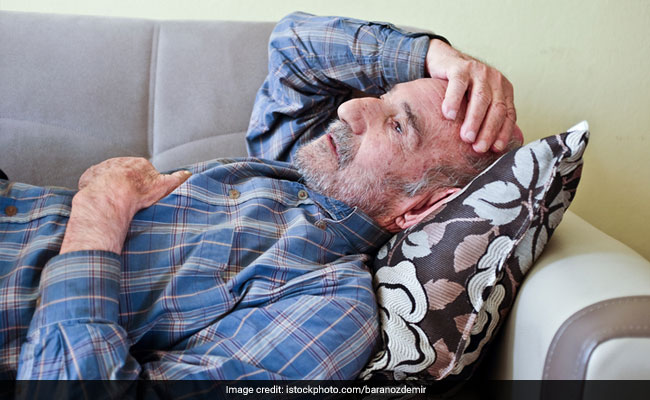There are different types of dementia with Alzheimer's Disease being the most common type of it.September 21st is celebrated as World Alzheimer's Day to help bring awareness for this common, but much ignored problem.

World Alzheimer's Day is observed yearly to spread awareness about the Alzheimer's disease.
Just imagine forgetting everything that you have learned since you were born, from doing your work.. to even eating food...This is what is commonly seen in Alzheimer's disease, a progressive degenerative disease that affects the memory, thinking and social abilities of a person.
There are different types of dementia with Alzheimer's Disease being the most common type of dementia. September 21st is celebrated as World Alzheimer's Day to help bring awareness for common but much ignored problem.
Also Read: Top 7 Unknown Facts About Alzheimer's
Why and How does Alzheimer's happen?
The brain has millions of small neurons all connected to each other. In the between these neurons, there are chemicals called neurotransmitters. These chemicals help spread the messages across these neurons helping form memories. In Alzheimer's Disease , a protein called beta- amyloid begins to stick together and another protein called tau begins to break apart. This process causes both proteins to start depositing in the brain. This leads to shrinkage of the brain cells and hence the messages stop getting transmitted across the neurons. As a result, new memories are not formed and old ones slowly and steadily start disappearing as well.
Recognizing possible signs of Alzheimer's Dementia
1. Memory loss: The first and most common sign is loss of memory. People start having trouble remembering recent new things. Many times they start asking the same question again and again.
2. Difficulty completing daily tasks at home: People with Alzheimer's often find trouble in completing simple tasks around home.
3. Confusion with time or place: Often family members with Alzheimer's will loose track of the day, time and year. Sometimes they forget how they got to a place or the passage of time.
4. Difficulty continuing conversations: one might have trouble continuing a thought and may stop multiple times to recall what they were saying.
5. Changes in Mood and personality: Often there might be change in personality where the person affected might become suspicious of their family members, start arguing for irrelevant things or become depressed.
Risk factors:
1. Age: People above 65 years are at a risk of Alzheimers but around 1/3 rd of people above the age of 85 years are usually affected.
2. Family history of Alzheimer's Disease: People with parents or siblings with Alzheimer's are more likely to develop this disease. Genes play a big role in this.
3. Genetic predisposition: Certain genes predispose one to Alzheimer's. Certain genes like apolipoproteins E e4 or APOE-e4 increase the risk of Alzheimer's. When someone inherits 2 copies of these genes, the risk is even higher. Other genes including Amyloid Precursor protein ( APP), presenilin-1 (PS-1) and Presenilin-2 (PS-2) put people at a risk of familial Alzheimer's disease - this is when multiple family members suffer from Alzheimer's and have the onset of symptoms before the age of 65 years. This is quite rare.
In Alzheimer's Disease - these symptoms occur often and get worse over time. Having one of these symptoms occasionally - as in forgetting where you kept your keys - does not mean that you have Alzheimer's. Most of the time, the person suffering from Alzheimer's do not even realize that they are having memory problems and it is the family that starts noticing the change. Early diagnosis and care of the person with Alzheimer's disease is important. This is a difficult diagnosis especially for the caregiver.
(Disclaimer: Dr.Sonia Lal Gupta is a neurologist specializing in Headache Medicine and Strokes. She is practicing at Metro Multispecialty Hospital, Noida and MP Heart Clinic, New Delhi. She is also the co-host of NDTV's weekly health segment "Doctors on Call".)
DoctorNDTV is the one stop site for all your health needs providing the most credible health information, health news and tips with expert advice on healthy living, diet plans, informative videos etc. You can get the most relevant and accurate info you need about health problems like diabetes, cancer, pregnancy, HIV and AIDS, weight loss and many other lifestyle diseases. We have a panel of over 350 experts who help us develop content by giving their valuable inputs and bringing to us the latest in the world of healthcare.












